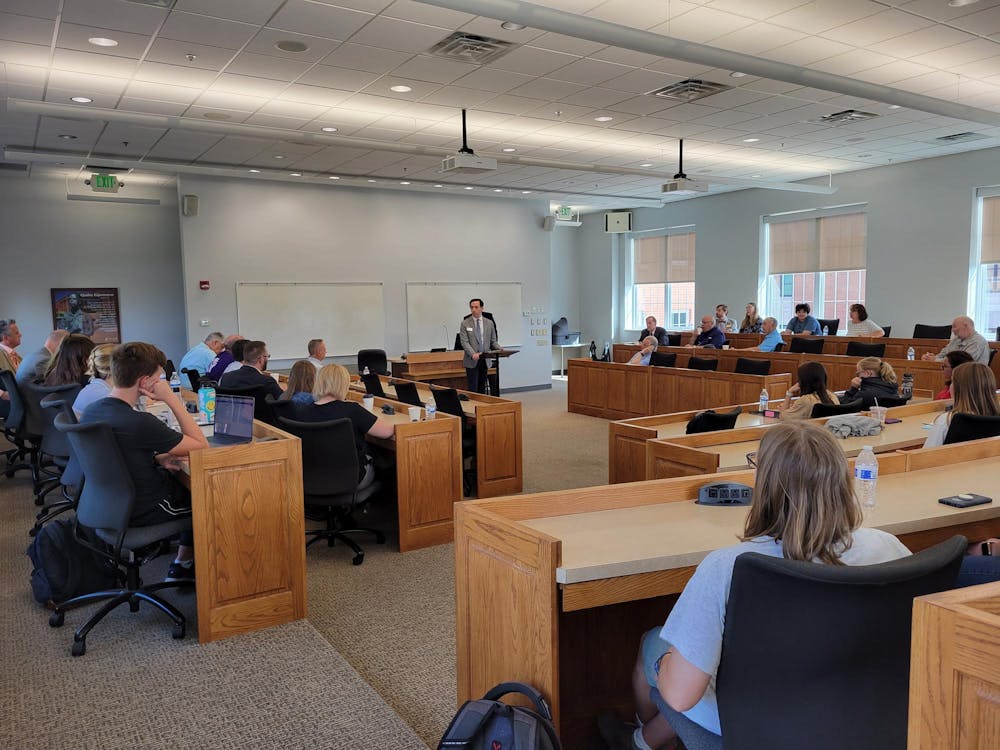Cushman currently teaches at the University of Notre Dame as a professor of law, political science, and history. Before coming to the University of Notre Dame, he taught for fifteen years at the University of Virginia, where he was the James Monroe distinguished professor of law and professor of history- Editor.
Seldom do presidents and political party leaders agree completely with the U.S. Supreme Court decisions. Generally, the first reaction is often to seek some way of changing the court by either adding more members to the court who are sympathetic to the political philosophies of the president or political leaders, or suggest to justices who disagree to retire so that justices with more aligning values may be nominated for appointment.
Professor Barry Cushman came to Taylor on Sept. 20 to deliver a speech on the court-packing crisis of 1937. The lecture consisted of his speech and afterward, a Q&A session which brought clarity to students and staff.
During Franklin D. Roosevelt’s presidency, he planned to “pack” the court, transitioning from nine to 15 justices to make it more “efficient.” People who criticized this idea said Roosevelt’s plan was to gain party support by expanding the court in order to neutralize justices who were hostile to his “New Deal.”
The plan to pack the courts was to initially offer justices a solution that would allow those over the age of 70 to retire with full benefits and pay. If a justice refused to retire, Roosevelt’s plan enabled him to appoint another additional justice as an assistant to the justice over the age of seventy, therefore getting Roosevelt closer to a court that was for the majority — liberal, Cushman said.
Within days of the bill being introduced, Rep. Hatton Sumners of Texas assembled a “comfortable majority” in the committee to oppose the measure. The goal of the opposition was to suspend the bill indefinitely, rendering the court-packing plan essentially useless, Cushman said.
Roosevelt was anxious to bring this bill to the Senate. He proposed two weeks for each side to present their arguments for or against the bill, ending in a filibuster from the opposition, or “talking a bill to death,” Cushman said.
“Dr. Cushman’s focus was in the 1930s when members of the New Deal administration were upset with the Supreme Court striking down key legislation enacted by congress,” Jones said.
There was debate about the philosophy of the court during the October 2020 justice nominations that something needed to change. This could have meant expanding the court so that the new president can nominate new justices, Jones said.
Cushman also offered some advice to students wanting to pursue a career in law. He encouraged students to study other subjects, not just law. He said his economics, law and history classes gave him a practical application for his study of law.
“History is a good thing to study, I think because constitutional laws are historical in nature because you're always looking for precedents for things that have been decided in the past,” Cushman said. “I think philosophy is very good too, just because of the analytic training it gives you that is helpful.”




